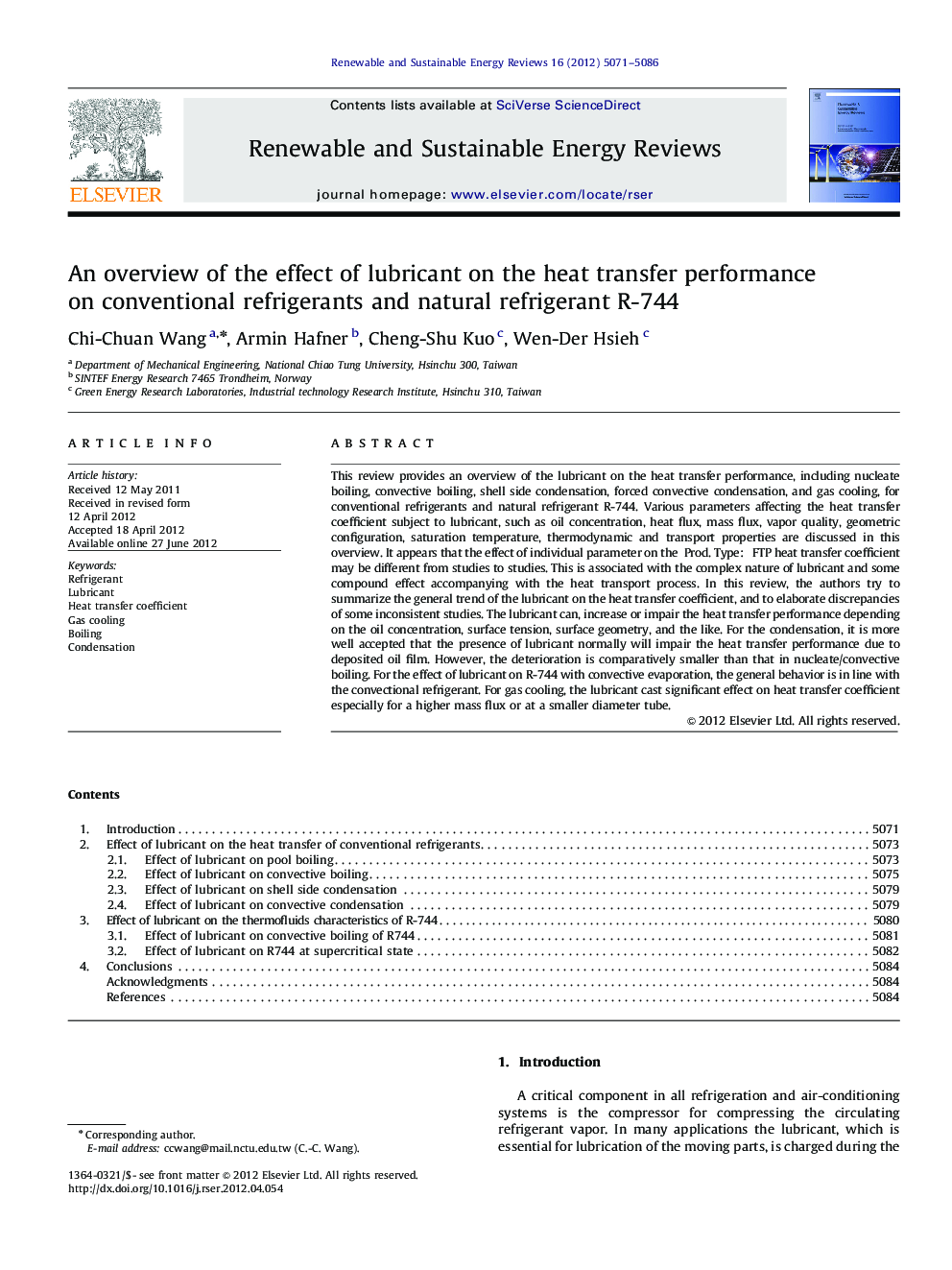| Article ID | Journal | Published Year | Pages | File Type |
|---|---|---|---|---|
| 1750939 | Renewable and Sustainable Energy Reviews | 2012 | 16 Pages |
This review provides an overview of the lubricant on the heat transfer performance, including nucleate boiling, convective boiling, shell side condensation, forced convective condensation, and gas cooling, for conventional refrigerants and natural refrigerant R-744. Various parameters affecting the heat transfer coefficient subject to lubricant, such as oil concentration, heat flux, mass flux, vapor quality, geometric configuration, saturation temperature, thermodynamic and transport properties are discussed in this overview. It appears that the effect of individual parameter on theProd. Type: FTP heat transfer coefficient may be different from studies to studies. This is associated with the complex nature of lubricant and some compound effect accompanying with the heat transport process. In this review, the authors try to summarize the general trend of the lubricant on the heat transfer coefficient, and to elaborate discrepancies of some inconsistent studies. The lubricant can, increase or impair the heat transfer performance depending on the oil concentration, surface tension, surface geometry, and the like. For the condensation, it is more well accepted that the presence of lubricant normally will impair the heat transfer performance due to deposited oil film. However, the deterioration is comparatively smaller than that in nucleate/convective boiling. For the effect of lubricant on R-744 with convective evaporation, the general behavior is in line with the convectional refrigerant. For gas cooling, the lubricant cast significant effect on heat transfer coefficient especially for a higher mass flux or at a smaller diameter tube.
